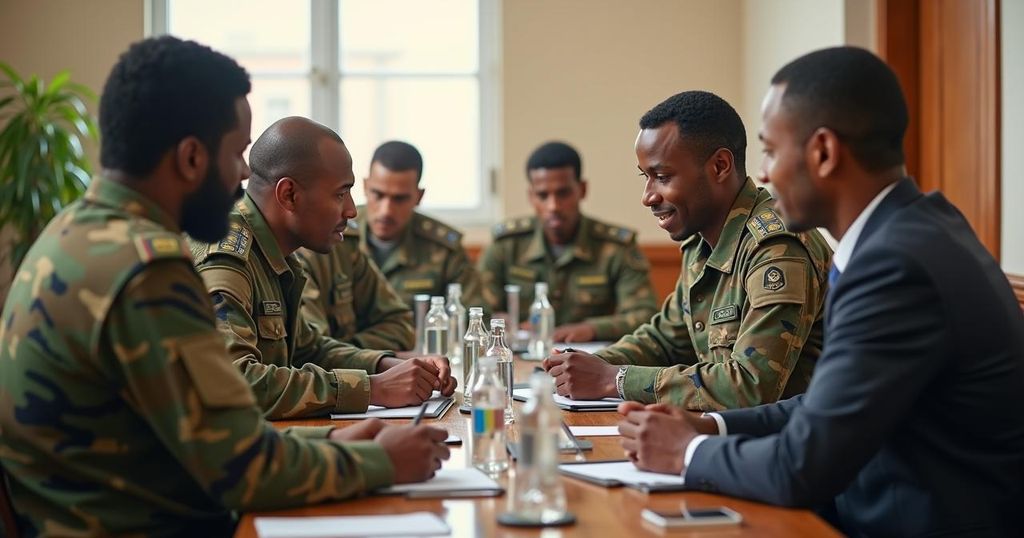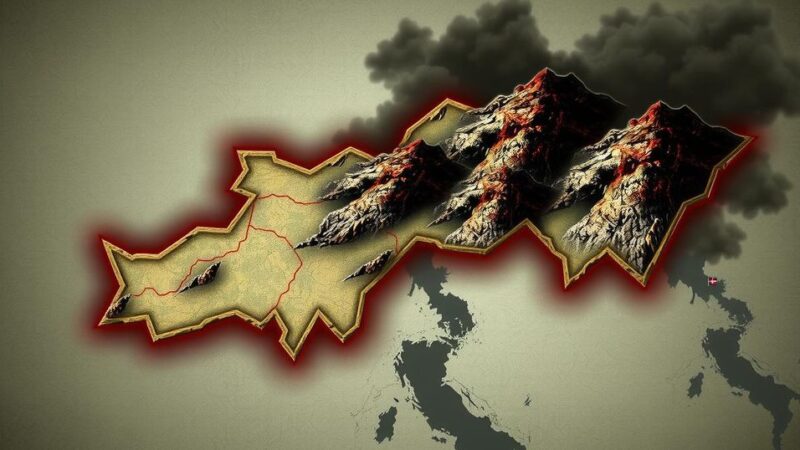The presidents of Somalia, Eritrea, and Egypt have convened to solidify security cooperation, aiming to address the threat of al-Shabab and enhance regional stability. Their agreement came amid complex relations with Ethiopia, especially concerning military and territorial issues in Somalia.
In a significant development for regional security, the leaders of Somalia, Eritrea, and Egypt convened in Asmara to fortify their cooperative efforts against rising threats in the Horn of Africa. The summit, initiated by Eritrean President Isaias Afwerki, also featured Egyptian President Abdel Fattah al-Sisi and Somali President Hassan Sheikh Mohamud. Amid ongoing clashes with the al-Shabab militant group in Somalia, the three presidents underscored their commitment to enhancing stability and respect for sovereignty within the region. A joint statement from the Eritrean information ministry emphasized their resolve to confront foreign interference in domestic affairs and to take collective action towards regional stability and sustainable development. The leaders recognized the necessity of collaboration in combating terrorism, safeguarding borders, and maintaining national integrity, particularly as Somalia confronts security challenges posed by al-Shabab. This agreement could potentially disrupt Ethiopia, which has been embroiled in its own security engagements in Somalia against al-Qaeda-linked militants, especially in light of the contentious relationship regarding resource management and territorial controls. Additionally, Somalia and Egypt had previously solidified their military partnership through a recent agreement aimed at enhancing joint operations against terrorism. Furthermore, ongoing tensions persist between Ethiopia and Egypt over the Nile River dam construction issue. Analysts note that Eritrea’s historical grievances with Ethiopia, stemming from a lack of involvement in the peace dialogue regarding the Tigrayan conflict, might influence regional dynamics. Meanwhile, Ethiopian officials have presented a facade of amiability towards Eritrea, with Foreign Ministry spokesperson Nebiat Getachew asserting that their relationship is characterized by “good neighbourliness and good friendship.”
The Horn of Africa has been a focal point of geopolitical tension, characterized by various internal and external conflicts, particularly involving Somalia, Eritrea, and Ethiopia. Somalia continues to grapple with violence from extremist groups like al-Shabab, which complicates its domestic and regional security landscape. Eritrea has had a tumultuous history with Ethiopia, particularly during and following the Tigray conflict, with feelings of exclusion and security concerns influencing its foreign policy decisions. The dynamics in the region are further strained by the ongoing dispute between Egypt and Ethiopia over the Nile River’s hydroelectric projects, which have significant implications for water resource management and security in the context of regional cooperation.
In conclusion, the trilateral agreement among Somalia, Eritrea, and Egypt marks a strategic effort to enhance security and stability in the Horn of Africa amidst a backdrop of regional conflicts and disputes. By reaffirming their commitment to sovereignty and joint cooperation against terrorism, the leaders seek to establish a more secure and prosperous environment. However, the implications of this alliance may provoke reactions from Ethiopia, potentially altering the intricate balance of power in the region.
Original Source: www.aljazeera.com






